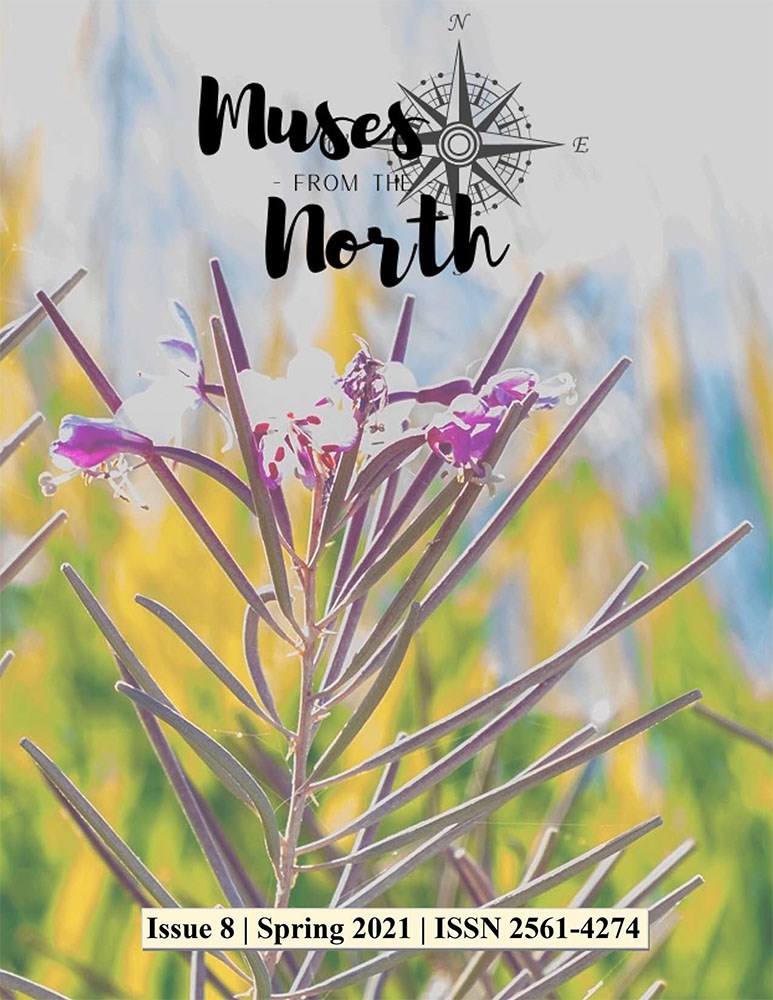The theme of the eighth edition of University College of the North’s (UCN) student journal Muses from the North was connection to the land, but for many of the writers whose work was published, a secondary theme was discovery.
The issue, which came out a couple of months ago, features works by many students who either thought they weren’t strong writers or never showed their work to anyone but now have a publishing credit to their name.
“I’ve always hidden my writing,” said Kayla Wall, whose contribution is entitled ‘Losing land is losing life.’ “I didn’t let anybody read my writing before. This is a huge accomplishment for me.”
Kelly Laybolt, whose writing also appeared in an earlier issue, recalls that when he came to UCN he had been out of school for more than five years and working in the mine. Getting published was not one of his priorities, because just taking English classes made him nervous.
“It made me feel good to know that even though I had been gone so long that my writing was still good enough to be seen by a lot of people,” said Laybolt, whose piece ‘Remembering Our Teaching’ looks back on his days with the Scouts.
Exhilarating as it can be to have a piece of writing published, it also brings about apprehension, either when you sign off on the final version or when it is printed and people have the chance to read it.
“I immediately started thinking, ‘Oh, I could have added that, I could have changed this,’” says Ian Sinclair, the title of whose contribution comes from something that his grandfather often told him – ‘You must respect the land.’ “Once it’s sent I can’t really do anything, I can’t really say, ‘Send it back to me, I need to add more,” so I was nervous.”
“I felt happy but at the same time I had a mixed feeling of, ‘Oh boy, people are going to start critiquing my work now,” says Sandreka Kaczoroski.
She wrote about her home country of Jamaica in one of her published pieces.
“You write about your own country thinking, ‘Oh, there’s a little negativity in there.’”
A published article not only reflects all the work and many rounds of edits it went through to get to its final form, but also serves as a snapshot in time, says Nicole MacKenzie, who wrote ‘COVID-19: Is this really happening?’ about the coronavirus pandemic in the seventh issue of Muses.
“It just gave me an opportunity to reflect on the pandemic,” she said. “I don’t know if I would have done that if we had not been assigned that assignment so that was kind of neat to be able to put my feelings and thoughts on a piece of paper and be able to get it recorded.”
Though thoughts of receiving negative feedback can be daunting, being praised for your work is the more agreeable flip side, even if it comes from possibly biased sources.
“I shared it with my family after it came out and then I was really nervous, my heart was pounding,” said Nateshia Personious-Constant, who contributed a poem called ‘The Sorrow for Our Future Generations.’ “They gave me their feedback and they told me they liked it.”
Darlene Wilson, a “quiet writer” since she was a teenager, wasn’t surprised by her mother’s reaction to her story ‘Blueberries and White Skin.’
“She was on the phone to relatives all over Canada,” Wilson says.
Hearing from her former high school English teacher that he enjoyed her contribution was a bonus, especially since he deserves some of the credit for inspiring Wilson to express herself.
“He was one of the encouragers for my own writing,” she said.
Learning something about yourself is nearly as rewarding as seeing an article in print, says Catherine Ross, whose academic work on Indigenous literature was published.
“It was very challenging, especially writing for so long,” she said. “It’s been a challenge, coming from a reserve and whatnot.”
UCN professor Dr. Jospeh Atoyebi, who co-edits Muses along with Dr. Ying Kong, says no one could replicate what the student contributors have done, regardless of perceived writing ability.
“No one was going to tell your story better than you,” he said.
UCN student Paul Matczuk, whose graphic short story appeared in an earlier edition, says people often underestimate or are unaware of their own abilities.
“There’s so much creativity in the north, so much incredible untapped creativity,” he said. “I did not know that I was a capable writer until I was discovered.”
The eighth issue of Muse from The North can be read online.




